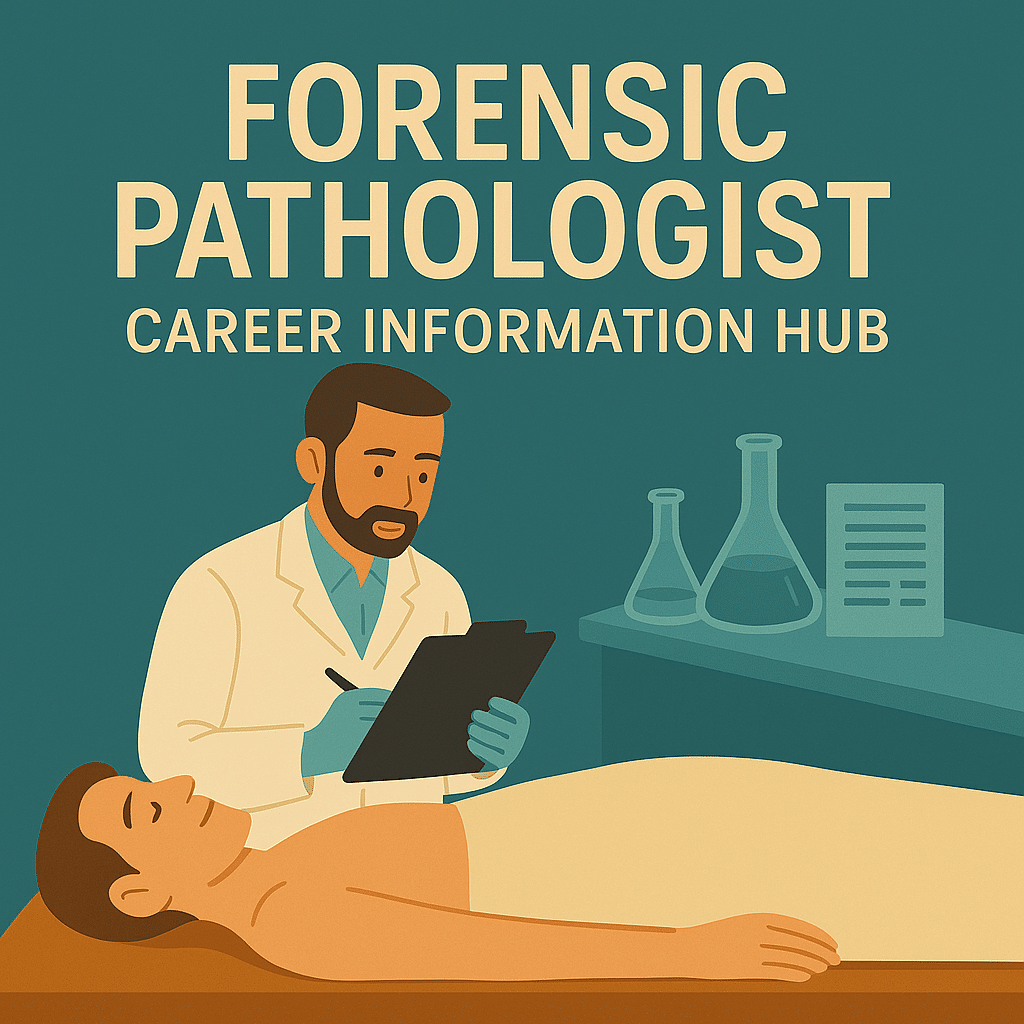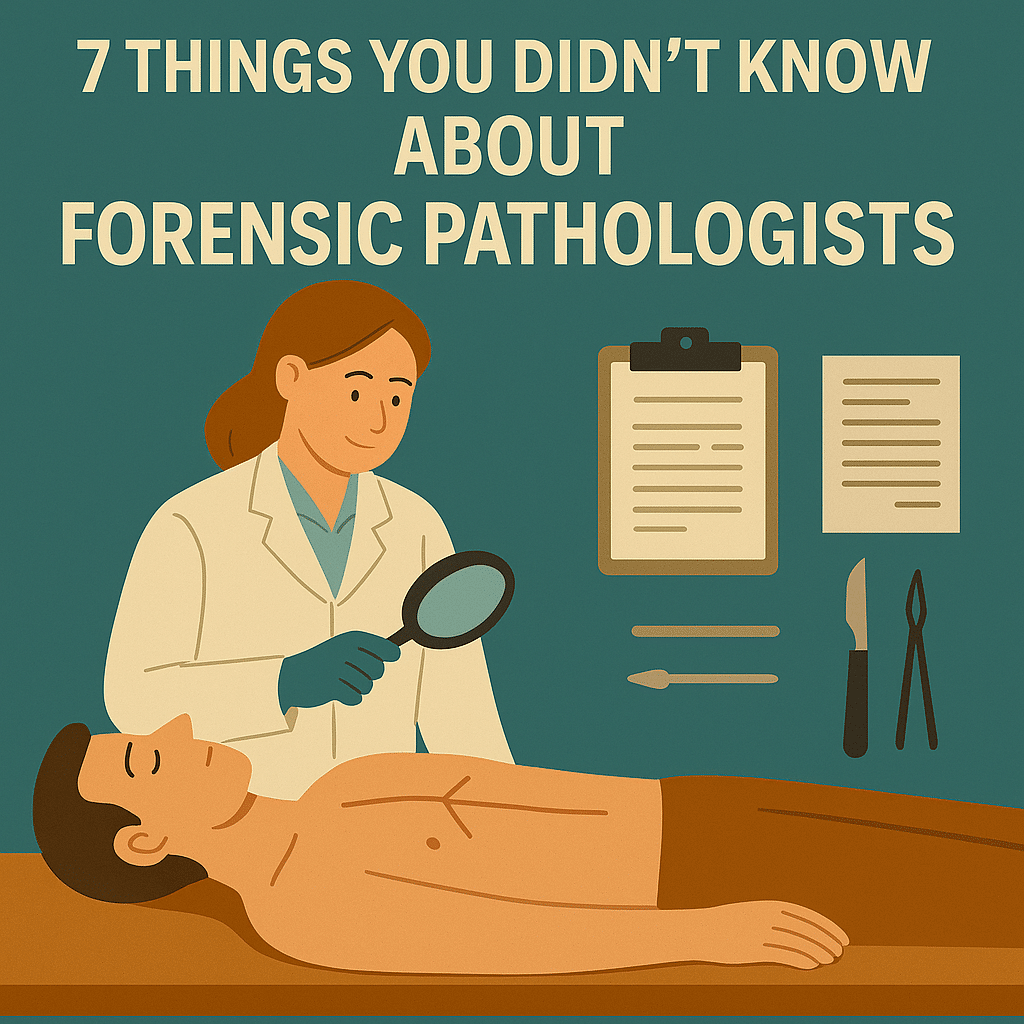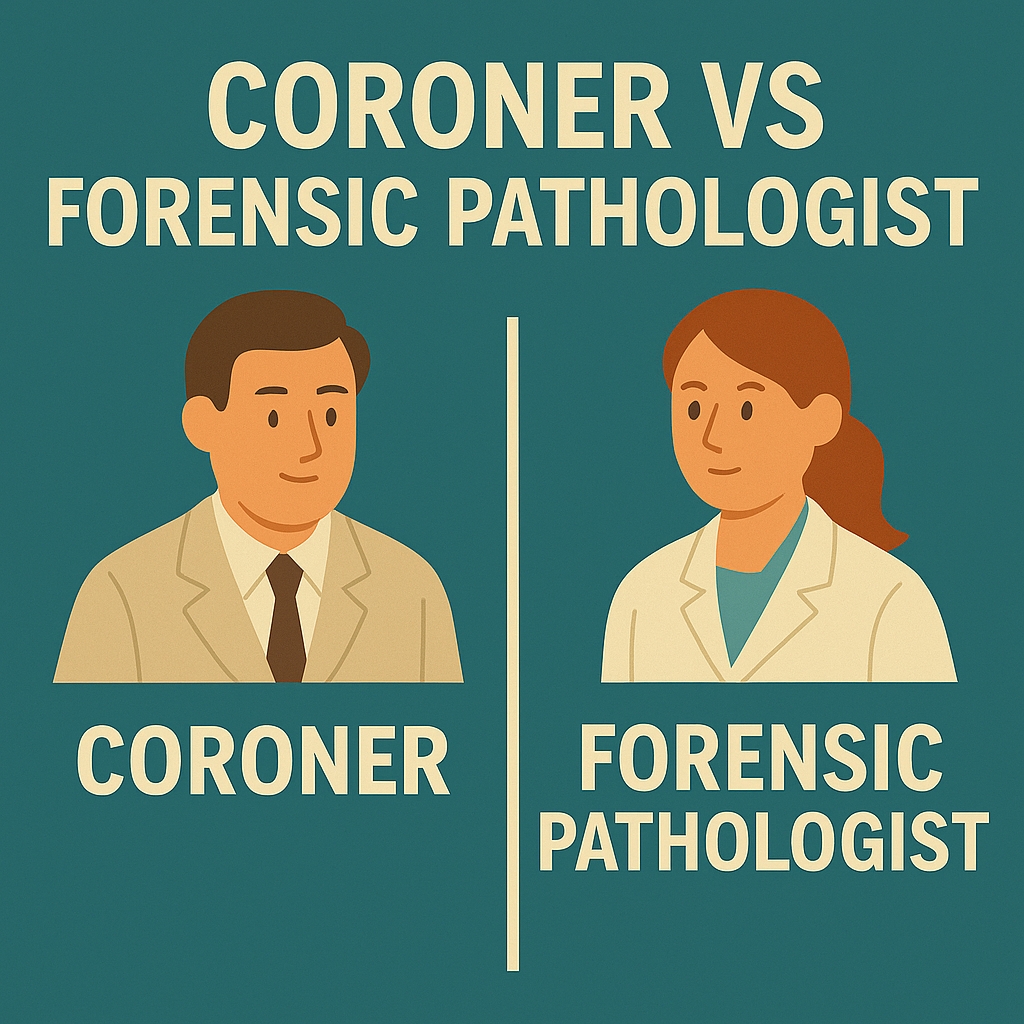Medicine Meets the Morgue
The Forensic Pathologist Career Information Hub
When someone dies unexpectedly, a forensic pathologist is often the one who answers the hardest question of all: What happened? These licensed medical doctors use science, anatomy, and investigative skills to determine the cause and manner of death. Whether the case involves a car crash, overdose, or suspected foul play, forensic pathologists play a critical role in public health, criminal justice, and family closure.
If you’re detail-oriented, fascinated by biology, and motivated to speak for those who no longer can, this career offers purpose, challenge, and profound impact.

Key Things To Know
Forensic pathologists are licensed physicians who specialize in determining how and why people die. Their work bridges medicine, science, and the legal system.
-
Medical doctors with specialized training: Forensic pathologists complete medical school, a pathology residency, and a forensic pathology fellowship.
-
They perform autopsies: They examine bodies, collect evidence, and document injuries to determine the cause and manner of death.
-
Work is detail-driven and precise: Every finding is documented carefully and may be used in legal proceedings.
-
They testify in court: Forensic pathologists often serve as expert witnesses in criminal and civil cases.
-
Not all cases involve crime: Many autopsies are for natural deaths, accidents, or to answer medical questions for families.
-
They work in labs and morgues: Most of the job takes place in a clinical setting rather than at death scenes.
-
They support public health: Findings may reveal trends in disease, injury, or substance use that help inform health policy.
-
Often part of a team: Forensic pathologists work with coroners, medical examiners, investigators, and law enforcement.
-
Long educational path: It typically takes 11 to 14 years of education and training to enter the field.
Why Choose This Career?
If you are drawn to solving puzzles, committed to scientific truth, and comfortable working with the realities of death, forensic pathology offers a uniquely meaningful path. You will use your medical training to answer questions that few others can, helping families find closure, assisting law enforcement, and uncovering facts that support both justice and public health.
This career combines intellectual challenge with real-world impact. It is not just about identifying how someone died. It is about giving the dead a voice and serving the living through precision, compassion, and truth.
Job Responsibilities
Forensic pathologists investigate deaths through medical examination.
They apply clinical expertise and analytical thinking to provide critical answers in both routine and high-profile cases.
-
Perform autopsies to determine cause and manner of death
-
Examine bodies for signs of trauma, disease, or injury
-
Collect biological samples for toxicology and laboratory testing
-
Review medical records, police reports, and scene information
-
Prepare detailed written reports of findings
-
Consult with law enforcement, attorneys, and medical examiners
-
Testify in court as an expert witness when needed
-
Participate in case reviews and public health reporting
-
Provide guidance in mass fatality incidents or public disasters
-
Maintain continuing education in forensic science and pathology
Education and Certification Requirements
Becoming a forensic pathologist requires a long-term commitment to medical education and training. It is one of the most rigorous paths in death investigation, but also one of the most respected.
-
Bachelor’s degree
Most forensic pathologists begin with a four-year undergraduate degree in a science-related field such as biology, chemistry, or forensic science. -
Medical school
You must complete four years of medical school and earn an MD or DO degree. -
Pathology residency
After medical school, you will enter a three to four year residency in anatomic pathology. Some programs include combined training in clinical pathology. -
Forensic pathology fellowship
Following residency, you must complete a one-year accredited fellowship in forensic pathology. -
Board certification
You will need to pass board exams from the American Board of Pathology in both anatomic pathology and forensic pathology. -
State licensure
Like all physicians, forensic pathologists must be licensed to practice medicine in their state. -
Continuing education
Ongoing professional development is essential to keep up with legal standards, scientific advancements, and evolving public health issues.
How To Get Started
If you’re interested in becoming a forensic pathologist, the path begins early and requires dedication and planning. Here are key steps to get you moving in the right direction:
-
Focus on science and math in school
Excel in biology, chemistry, physics, and math courses throughout high school and college. -
Earn a bachelor’s degree
Choose a pre-med or science-related major to prepare for medical school. -
Prepare for and take the MCAT: The Medical College Admission Test is required for medical school admission.
-
Attend medical school: Complete four years of medical education to earn your MD or DO degree.
-
Apply for pathology residency: After medical school, enter a residency program focused on anatomic pathology.
-
Complete forensic pathology fellowship: Pursue specialized training in forensic pathology through a one-year accredited fellowship.
-
Obtain board certification: Pass the certification exams from the American Board of Pathology in both anatomic and forensic pathology.
-
Seek licensure and employment: Obtain your medical license and find positions in medical examiner offices, hospitals, or academic centers.
Common Myths
Popular culture often paints an inaccurate picture of forensic pathologists. Here are some common myths and the real facts:
-
Myth: Forensic pathologists work only on murder cases
Fact: They investigate all types of deaths, including natural causes, accidents, suicides, and unknown deaths. -
Myth: They spend most of their time at crime scenes
Fact: Most work takes place in a morgue or lab setting, examining bodies and reviewing records. -
Myth: Forensic pathology is quick and glamorous
Fact: The work is detailed, time-consuming, and requires careful documentation and analysis. -
Myth: Anyone interested in crime shows can easily become a forensic pathologist
Fact: It requires many years of intense education and training. -
Myth: Forensic pathologists can always determine the exact time of death
Fact: Estimating time of death can be complex and is often approximate. -
Myth: They work alone
Fact: Forensic pathologists collaborate closely with coroners, investigators, toxicologists, and law enforcement.
What Makes Someone A Good Fit
Forensic pathology is a demanding but rewarding field. The people who thrive in this career tend to share several key qualities:
-
Strong attention to detail: Careful observation and precise documentation are essential.
-
Comfort with medical science and anatomy: A deep understanding of the human body and disease processes is required.
-
Emotional resilience: The work involves dealing with death and sometimes tragic circumstances.
-
Analytical and critical thinking skills: You must be able to interpret complex medical and forensic information.
-
Effective communication: Forensic pathologists must explain findings clearly in reports and court testimony.
-
Commitment to ethics and professionalism: The job requires integrity, confidentiality, and respect for the deceased and their families.
-
Curiosity and problem-solving drive: A desire to uncover the truth through scientific inquiry is important.
Articles
Frequently Asked Questions
Have questions about what forensic pathologists do or how to start a career in this field? Here are answers to some of the most common questions.
Disclaimer: The information provided on this website and by Buried in Work is for general informational purposes only and should not be considered legal advice. Please consult with a qualified attorney or subject matter expert for advice specific to your situation.


